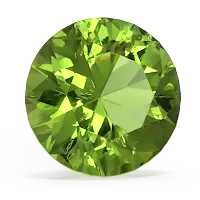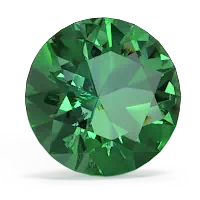

From the French for 'a thousand grains', the tiny beads of a milgrain accent can add complexity and detail to a Peridot design, as well as create a vintage or antique look. Legends say that wearing a peridot pendant can bring happiness and contentment. Set in gold and surrounded with diamonds, the power of a peridot is said to intensify. Emerald is associated with Venus, the Greek goddess of love and beauty. They say an emerald pendant can protect lovers from unfaithfulness.